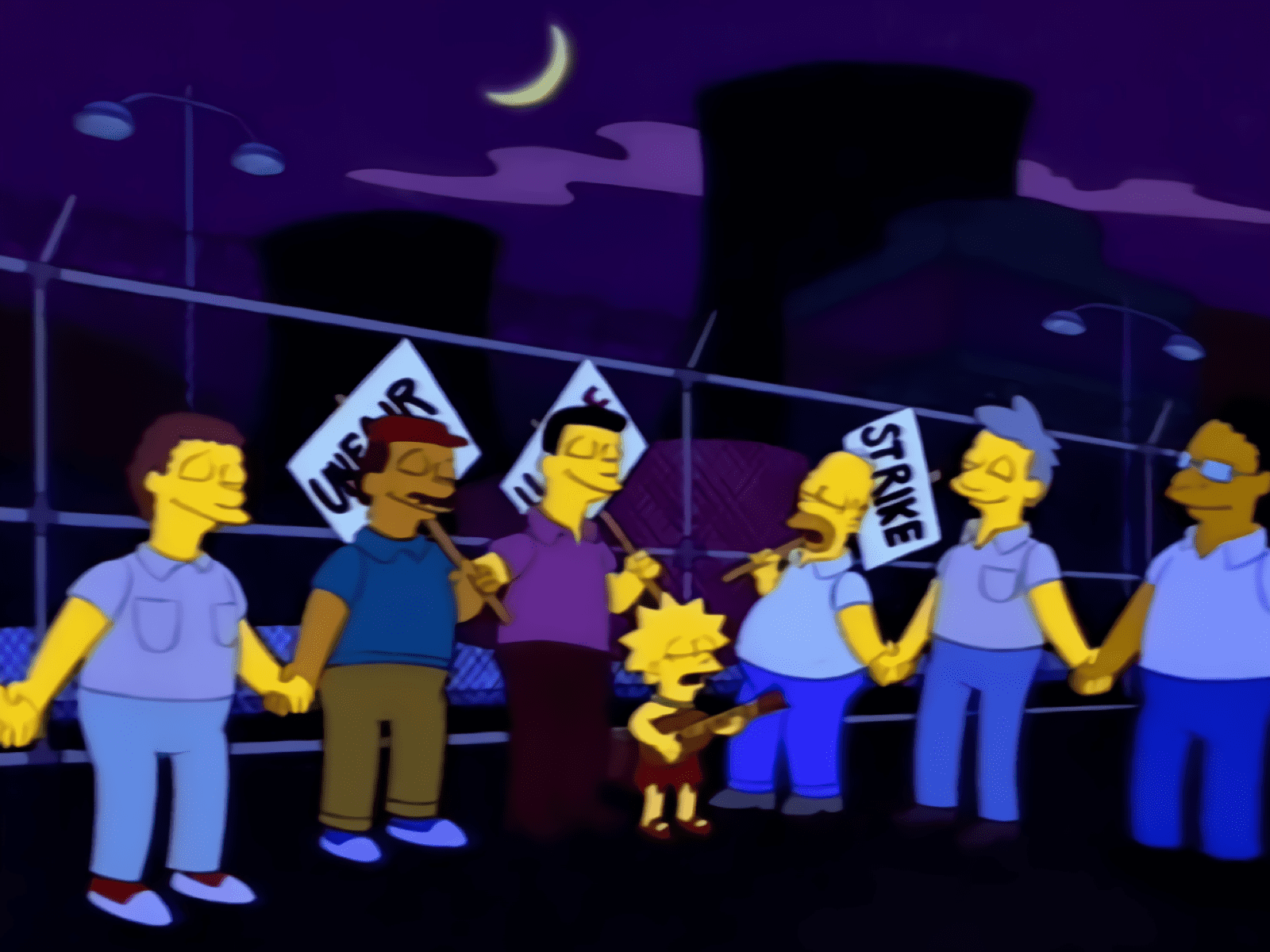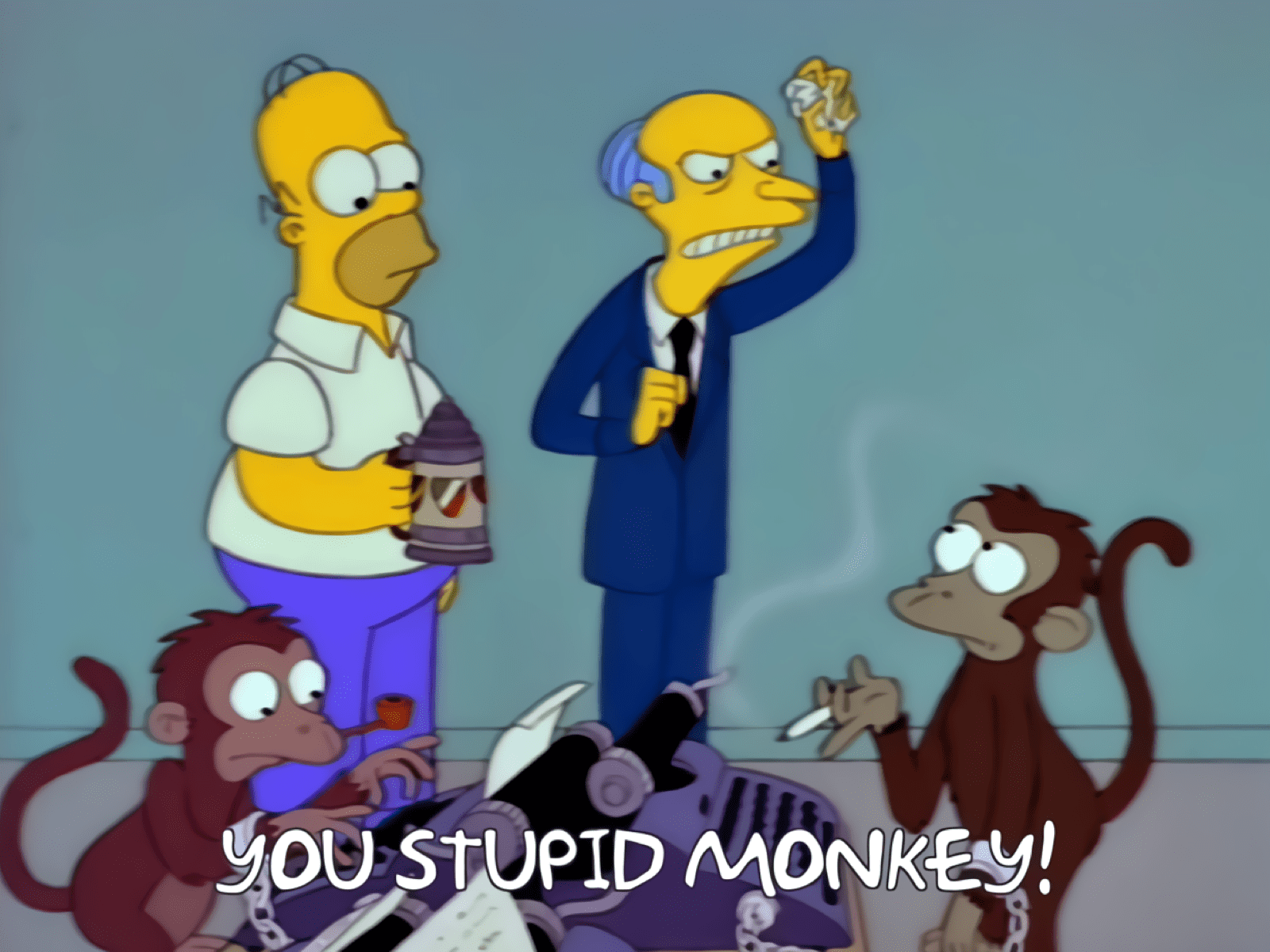As a child of the 90s, my earliest memory of unionism wasn’t of going to a rally with my family or eating snags on a picket line. Dad was an AMWU shop steward, but they never went out on the grass. No, my earliest memory of worker solidarity was a staunch group of nuclear power plant workers going on strike for their… say it with me now...
DENTAL PLAN! Lisa needs braces.
Sitcoms, especially American ones, provide both good and bad representations of unions. The Office features an episode where workers talk about unionising, but immediately drop the conversation upon threat of immediate termination. More recently, NBC’s Superstore tells a more complex story about the challenges and absurdities of starting a union in a huge retail conglomerate. The advent of Festivus in Seinfeld often overshadows the fact that the episode it was born from is called The Strike, and tells the story of bagel store workers going back to work (and then immediately going on strike again) after 12 years of holding strong.
The Simpsons episode Last Exit to Springfield is different. It’s special.
Look no further than the lyrics to one of the staunchest, most heartfelt union songs ever penned:
Come gather ‘round children
It’s high time ye learned
‘Bout a hero named Homer
And a devil named Burns
We’ll march ‘til we drop
The girls and the fellas
We’ll fight to the death
Or else fold like umbrellas
So we’ll march day and night by the big cooling tower
They have the plant but we have the power
(“Now do Classical Gas!”)

Isn’t it beautiful? It’s militant as hell - only they’re not vengeful, they’re defiantly joyful. (As Mr. Burns notes: “Look at them all through the darkness I’m bringing - they aren’t sad at all, they’re actually singing!”)
Aside from many memorable moments, which we can all reminisce about in our own time, it’s an honest and inspiring story of working people winning by sticking together. They vote overwhelmingly to go on strike (with one exception: “It was him. Let’s get him, fellas!”) and the thought of caving doesn’t occur to anyone even through the use of hired goons and a town-wide power shutdown. They outlast Mr. Burns, the very archetype of an evil capitalist (literally a cartoon villain), and regain their dental plan.
The great irony, of course, is that The Simpsons is a creation of Fox, essentially making this great tale of worker struggle a product of the Murdoch empire. The 90s was a strange, yet much simpler, time.
You might say it was the best of times, and it was the blurst of times.

Sitcoms, especially American ones, provide both good and bad representations of unions. As a child of the 90s, my earliest memory of unionism wasn’t of going to a rally with my family or eating snags on a picket line. Dad was an AMWU shop steward, but they never went out on the grass. No, my earliest memory of worker solidarity was a staunch group of nuclear power plant workers going on strike for their… say it with me now...
DENTAL PLAN! Lisa needs braces.
